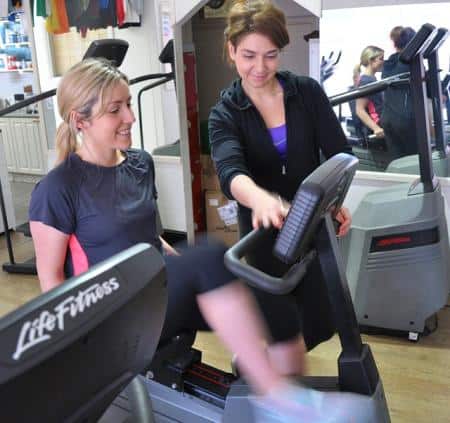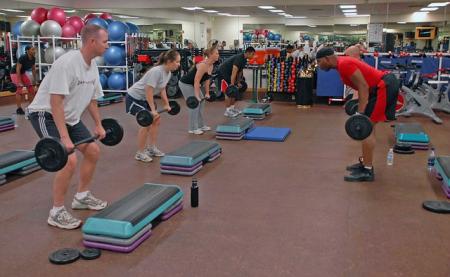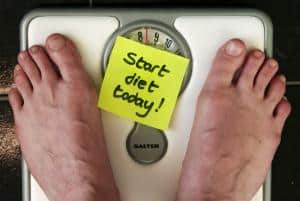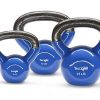With the New Year only a couple of months away, now is the time to start putting together a fitness plan to get you fit and healthy heading into the holiday season. A fitness plan is of great benefit when you are looking to start exercising or when training towards a goal; it can help shape what you do to reach your goals, keep you on track and help keep you motivated.
We all know the benefits of exercise, and having a plan in place can certainly help. But what are the components of a fitness plan and what should you put in one? Should you just exercise on your own or are there benefits to including classes and group workouts such as boot camp workouts in your plan?
Below, we give you some tips on putting together a fitness plan, what you need to do before you start your plan (especially if you haven’t exercised in quite some time) and what you should include in your plan. Keep in mind that your plan should revolve around your individual needs and what you need to do reach your fitness goals.
How To Put Together A Fitness Plan

A fitness plan can help shape what you do to reach your goals, keep you on track and help keep you motivated.
How many times have you sat down and tried to put a fitness plan together only to realize that you have no idea how to do it?
First things first, plan out how much time you have available over the next week to exercise and where you plan on doing that exercise – the gym, at home, outdoors. Next up is to make a list of all the things you enjoy doing; there is no point in making a plan full of exercises you don’t like – you won’t end up keeping with it. But don’t discount exercises just because they look hard; if you haven’t done them before, give them a go – you may find you really enjoy spin classes, running or boot camp workouts.
Once you know what you want to do and how much time you have, it is time to start putting together your plan. Remember to mix up cardio days and strength days; while you won’t burn as many calories in a strength session, your body will keep burning more calories for longer than if you did a cardio session. Also, remember to add in one or two rest days a week; you will need them especially if you are just starting out.
Don’t overdo your plan to start with – start with 30 – 40 minutes of exercise a day until you get fitter and then add to that time. Change up your fitness plan every three to four months so your body doesn’t get used to doing the same thing every week.
Things To Do Before Starting A Fitness Plan
One of the main things you should do before starting an all-day fitness plan is to talk to your doctor as well as any other health professionals you are seeing. You might be wondering why you would put together a plan prior to seeing a health professional. Essentially, it gives you something to take to them that they can run their eye over, check to see if there is anything you shouldn’t be doing and check to see if you are missing something you should be doing.
If you are training for a particular event, you should think about chatting with some professionals in that field or who may have knowledge of that field – personal trainers for training tips, a physio for injury reduction tips, and a nutritionist for nutrition tips around the type of training and event you are planning on doing.
For those coming back from injury it is extremely important to check with your treating medical professional as to what you can and can’t or should and shouldn’t be doing; the last thing you want is to re-injure yourself. This may mean talking to your doctor and a physio or chiro or the like (depending on the type of injury) as well as a personal trainer who will be able to look over your plan to see if there are risks for re-injury.
Classes To Include In Your Plan

Classes and group training sessions such as boot camp workouts can provide so much more than a fun way to exercise.
Often people think that their plans should just include some cardio work, some weight work and a couple of rest days, but classes and group training sessions such as boot camp workouts can provide so much more than a fun way to exercise.
Depending on your goals there are many types of classes or group fitness sessions you can attend. If your goal is overall fitness, you may like to attend a session or class which has a mixture of cardio and strength exercises such as boot camp workouts or combat classes. If your goal is to ramp up your cardio and lose weight, you might take into consideration classes such as spin classes; whereas if your goal is weight training and building muscle you could attend classes such as a pump class.
If you aren’t quite sure what type of class or group fitness session will suit you, there are two things you can do. Firstly, have a discussion with the person who runs the class and find out the type of exercises they do, what they are focused towards and whether they suit your goals. Secondly, if you find the aim of the class suits your goals, attend a session or two to see if you enjoy them. Trainers who run boot camp workouts will often give you a free or discounted trial session – these sessions are a great way to see if you enjoy the workouts without locking yourself into anything.
A really big consideration to factor into your plan is motivation and support. This could come from family or friends, or it may come from a trainer at the gym you go to. If you find you aren’t getting the support you need from your family, have a chat with them and ask them to support you more. If this fails, find yourself an exercise buddy who can support you while you are supporting them.
Just remember that a fitness plan is integral to staying on track and losing weight – it will be your support when you are feeling low, your motivation to keep you going and your reward for when you look back and see how far you have come.


















Hello!
I’ve returned to the gym to complete my fast diet plan and the enthusiasm was such that I eventually fill every day of the week with physical exercise.
The only drawback is that I’m having some difficulty in reconciling the fast days with days of training, given that the drills are made at the end of the day and with some intensity.
My days of fasting are Monday and Thursday. On Monday, I do a kickboxing class that starts at 9 pm and Thursday, I do a 45 min training indicated by the coach, in the middle of the afternoon.
If on Monday, I can dinner before going to kickboxing because the caloric value of food intake is controlled, on Thursday the training is carried out through fasting what gives me no energy to do it.
I’d love to hear your opinion and advice in order to reconcile the diet and the exercise.
Thank you,
Edna
Hi Edna
That’s great that you are combining exercise with your weight loss goals, it will definitely help you to achieve your goal sooner and help you maintain your health.
In regards to your schedule, it’s hard to determine the exact cause because I would need to know what your week and diet is like as a whole; across the entire week.
However based on the information you have shared, my opinion is that perhaps you are doing a very intense form of exercise on your fasting days; when it should not be so exhaustive. A kickboxing class at 9pm to me is intense; and you are doing it late at night when normally your body is getting ready to wind down, sleep and go into ‘repair mode’.
There is more to the 5:2 fasting diet plan than just calorie restricting, all of which I won’t go into right now (however please read the emails from the 4 week beginners challenge and check out some of the articles on the site, such as this one)
By doing such intense exercise, you are putting a lot of strain on the body, and perhaps this is why you are finding it harder to do the strenuous training on the days you fast.
However if you normally do a lot of exercise and your tolerance is high then this might be normal or OK for some; but for the majority I would say it’s best to stick with gentle to moderate exercise on fasting days.
I think you have 2 options here:
1. Try mixing up the times you eat and how many calories you have in any given meal. If you know you are doing your class late in the evening start the day with lighter calories and increase them over the day, having the most calories with some protein before your session and then just have something light when you finish. This way you will fuel your body for the workout and by having something light (like miso soup) after your workout it may prevent you waking up throughout the middle of the night with cravings.
But not having ever tried kickboxing I can not say what the effects could be or how intense it actually is – so I have no personal experience with this.
2. The other option is, if you do not wish to change your classes around then I would consider changing the days you fast, perhaps Monday and Thursday’s are not the best days for your schedule. That is what is great about the 5:2 fasting diet plan, it is flexible to work with your lifestyle and commitments. Perhaps based on your commitments Monday and Wednesday may be better.
Listen to your body; maybe you are pushing it too hard on the days you are fasting and all your hard work may be for nothing because sometimes if you work out too hard / intense whilst you are calorie restricting you may push your body into starvation mode and this is when it will store the calories and fat, as the body thinks that it needs to protect itself (just like when you are really stressed out and producing too much cortisol).
Try making these few tweaks and see how things go.
All the best
Sarah